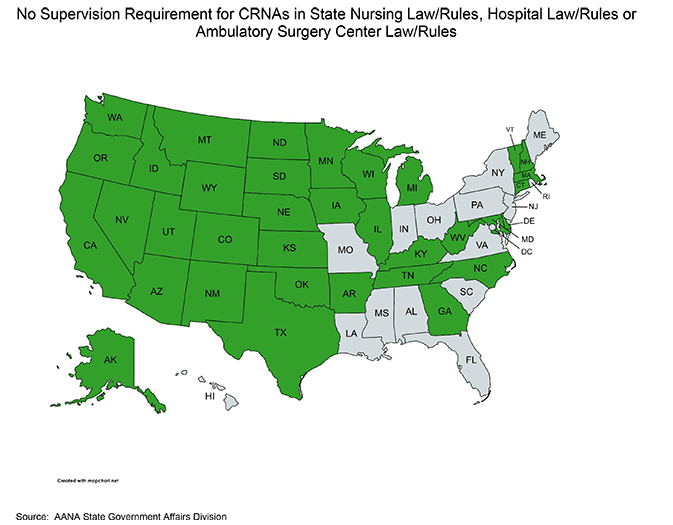The Issues
Legislative and regulatory restrictions negatively impact anesthesia patient care.
Restricting CRNA Practice Reduces Access to Care and Increases Costs
Restricting CRNA practice is contrary to the national trend toward allowing APRNs to practice to the full extent of their education and training. Requiring physician supervision of CRNAs in state nursing laws/rules reduces access to high quality, cost-effective care and actually increases healthcare costs. Further, the alleged benefits of physician supervision are not supported by published research.

Supervision Requirements
In 35 states, there is no Supervision Requirement for CRNAs in State Nursing Law/Rules, Hospital Law/Rules, or Ambulatory Surgery Center Law/Rules.
In 44 states, the nursing laws/rules do not require physician supervision of CRNAs.
CRNA Scope of Practice
CRNAs are highly educated advanced practice registered nurses who provide anesthesia care to patients in every healthcare setting where anesthesia is delivered, from traditional hospitals to physicians’ offices. The full scope of CRNA practice can be found in the AANA’s “Scope of Nurse Anesthesia Practice.”
CRNAs Provide Access to High Quality, Cost-Effective Care
There is overwhelming evidence that CRNAs provide superb anesthesia care, as indicated in recent studies. Research shows that CRNAs are the most cost-effective anesthesia providers, and that there is no difference in safety between CRNAs and anesthesiologists. CRNAs provide essential access to anesthesia care, especially in rural and other medically underserved areas of the United States.
